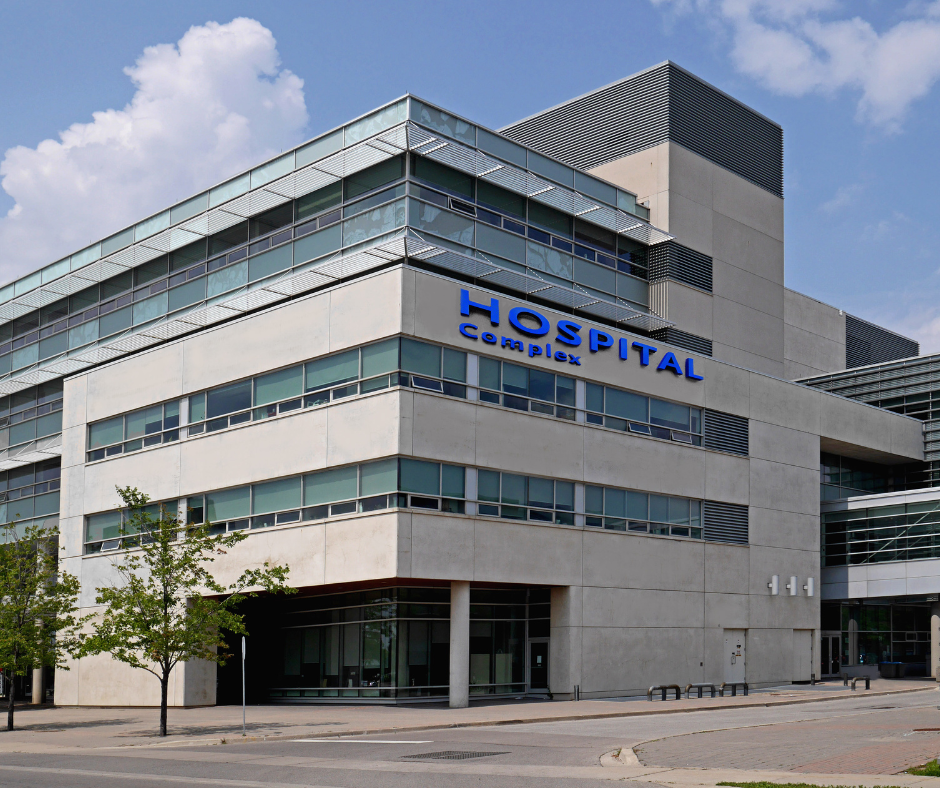The Essential Guide to Verify Medicare Eligibility and Benefits for Providers
Medicare is a crucial foundation of the U.S. healthcare system, providing essential health coverage to millions of older adults and people with disabilities. As a healthcare provider, ensuring that your patients are eligible for Medicare is a pivotal part of your role. It’s not only about ensuring the smooth operation of your practice, but also about providing the best care for your patients. But how do you verify Medicare eligibility efficiently and accurately? Let’s dive into understanding this critical process and explore how to “verify Medicare eligibility and benefits for providers.”
Key Takeaways
- Medicare eligibility covers individuals 65+, certain younger individuals with disabilities, and patients with end-stage renal disease or hospice care needs, necessitating providers to verify eligibility details for accurate claim processing and care provision.
- Providers use systems like HETS, IVR, and FISS DDE to verify Medicare eligibility and benefits information, which is essential for streamlining billing processes by reducing errors, denials, and enhancing the efficiency of healthcare delivery.
- Maintaining updated knowledge of Medicare regulations and employing best practices such as updating patient information, using multiple verification systems, and training staff are crucial for efficient Medicare eligibility verification and compliance.
Understanding Medicare Eligibility
Medicare is a federal health insurance program designed to provide coverage to:
- Individuals who are 65 or older
- Certain individuals under the age of 65 with disabilities
- Individuals of all age groups with end-stage renal disease (ESRD) requiring dialysis or a transplant
Furthermore, those with a terminal illness and a life expectancy of six months or less have the option to select hospice coverage over standard Medicare coverage. This decision can provide specialized care and support during their time of need.
However, simply knowing the general eligibility criteria is not enough. Providers must verify Medicare eligibility to gain access to pertinent Medicare benefits information. This information is key for claim submission and provision of sub-regulatory guidance.
Understanding Medicare eligibility is the first step in ensuring the smooth delivery of healthcare services. It is a foundation upon which other aspects of patient care and administrative procedures are built.
Key Medicare Verification Systems for Providers

Providers can leverage a variety of systems to verify Medicare eligibility. These include the HIPAA Eligibility Transaction System (HETS) provided by Inovalon, which offers 24/7 access to Medicare’s database. Home health and hospice providers affiliated with CGS also use systems such as myCGS, CGS IVR, HETS, and FISS DDE.
Additionally, software like Eligibility Verification Medicare can provide immediate and detailed results for Medicare eligibility verification. This can streamline the process for healthcare personnel to access Medicare benefits information, even with incomplete patient details. Such systems are pivotal in maintaining the efficiency of healthcare delivery.
HIPAA Eligibility Transaction System (HETS)
The HIPAA Eligibility Transaction System (HETS) is a key tool for verifying Medicare eligibility. Provided by the Centers for Medicare & Medicaid Services (CMS), HETS offers real-time provision of Medicare eligibility and benefits information to providers. It receives requests for eligibility data and furnishes the necessary information in response, effectively serving as a replacement for the Common Working File (CWF) for eligibility queries made by providers, suppliers, or their authorized representatives.
Healthcare providers can depend on HETS to confirm Medicare eligibility and benefits information for beneficiaries. It offers an extensive array of eligibility information, encompassing specifics such as submitter ID, provider ID, and the association between the submitter and provider. Thus, HETS is an indispensable tool in the arsenal of Medicare providers.
Interactive Voice Response (IVR)
The Interactive Voice Response (IVR) system is another significant tool. This telephone-based system enables providers to retrieve information regarding Medicare eligibility, claims, and other associated matters. The IVR system offers a convenient and efficient method for providers to check Medicare eligibility and access up-to-date information on their claims.
Providers can utilize the IVR to submit claims, verify claim status, and obtain other Medicare-related information using their telephone keypad. The IVR system provides providers with access to information such as claim status, patient eligibility, check status, and other Medicare-related issues.
Therefore, the IVR system is instrumental in verifying Medicare eligibility.
FISS Direct Data Entry (DDE)
Providers can also use the FISS Direct Data Entry (DDE) system to:
- Directly retrieve Medicare eligibility and claims information
- Input, rectify, modify, or annul Medicare Part A billing transactions
- Inquire about claims
- Directly submit claims into the FISS system.
Healthcare providers utilize FISS DDE to conduct Medicare eligibility verification by accessing the system to ascertain a patient’s beneficiary status, claim status, and insurance information. It offers a convenient and effective method for verifying eligibility and assisting in streamlining the billing process. Therefore, the FISS DDE system plays a vital role in streamlining Medicare eligibility verification.
Streamlining the Billing Process with Accurate Eligibility Verification

Streamlining the billing process heavily relies on accurate Medicare eligibility verification. It helps medical practices in:
- Identifying and obtaining any required prior authorizations before patients seek the service
- Reducing denials and ensuring prompt services for patients
- Clarifying how bills will be covered, thereby minimizing billing errors
- Enhancing the efficiency of claims processing
Preventing unforeseen billing complications necessitates the confirmation of Medicare eligibility at the onset of a patient’s stay. It contributes to a more streamlined billing process by confirming bill coverage and subsequently decreasing errors and denials related to eligibility. Thus, accurate eligibility verification is a cornerstone of efficient and error-free billing.
Reducing Administrative Burden
By preventing costly delays stemming from incorrect payments, claim denials, or requests for additional information, accurate Medicare eligibility verification offers the following benefits in healthcare:
- Lightens the administrative load
- Ensures accurate billing
- Reduces claim denials
- Facilitates timely reimbursements
- Streamlines healthcare processes
- Reduces administrative costs
- Improves overall efficiency
Healthcare providers can optimize their workflow for accurate Medicare eligibility verification by employing the following methods:
- Automating the verification process
- Implementing real-time eligibility verification
- Collecting and verifying insurance information upfront
- Utilizing online portals and automated phone systems
Each step towards reducing the administrative burden contributes to a more efficient healthcare system.
Minimizing Claim Rejections
Reducing claim rejections is significantly influenced by accurate Medicare eligibility verification. It ensures that patients possess valid coverage and that the services rendered are eligible for reimbursement. This lowers the likelihood of claims being rejected due to eligibility issues, thereby facilitating a more efficient billing process and improved revenue cycle management.
Typical causes of Medicare claim rejections include the utilization of incorrect MBS items, outdated patient information, and inaccurate Census information. To minimize claim rejections in Medicare, providers should implement best practices such as automating processes, staying informed about Medicare policies, conducting thorough verification checks, ensuring accurate claim submission, investigating denials for corrective actions, coding diagnoses accurately, and submitting appeals for denied claims.
Accessing Medicare Benefits Information

The eligibility verification process heavily relies on accessing Medicare benefits information. Real-time access to Medicare benefits data is available through several verification systems, such as:
- HIPAA Eligibility Transaction System (HETS)
- Inovalon Provider Cloud
- Verify Medicare eligibility for providers with Episode Alert
- Other real-time insurance eligibility verification solutions
These systems can be used for checking Medicare eligibility and providing comprehensive benefits information.
The HETS system offers retrospective and prospective visibility into Medicare benefits, enabling providers to access information up to four months in the past and up to four months in the future. The Interactive Voice Response (IVR) systems facilitate providers in accessing Medicare benefits information through a series of voice prompts and menu options, providing convenience and efficient access to benefits information.
Therefore, the retrieval of Medicare benefits information is a vital stage in the verification process.
Real-Time Access to Benefits Data
Real-time access to Medicare benefits data involves gathering patient details, automatically processing these details based on set rules, and transmitting the data for validation to the payer’s system. This enables providers to promptly verify a patient’s eligibility and check Medicare eligibility in real-time. The Medicare real-time benefit tool and real-time benefits verification systems are available for real-time access to Medicare benefits data.
The advantage of real-time verification is that it ensures immediate access to the most up-to-date information about a patient’s Medicare eligibility and benefits. This allows for accurate billing and efficient provision of care, reducing the risk of claim denials due to eligibility issues.
Understanding Secondary Payers and Replacement Plans
Comprehending secondary payers and Medicare replacement plans forms a key component of the Medicare eligibility verification process, including the payment aspect. Secondary payers and Medicare replacement plans play a significant role in the Medicare eligibility verification process by determining the primary or secondary payer for a beneficiary’s healthcare expenses.
Medicare replacement plans, such as Medicare Advantage plans, have the potential to replace original Medicare as the primary payer. Meanwhile, secondary payers, such as employer-sponsored health insurance or other private insurance plans, may assume responsibility for costs not covered by Medicare. Understanding these nuances is essential for accurate eligibility verification and efficient healthcare delivery.
Implementing Medicare Eligibility Verification in Healthcare Settings

Depending on the healthcare setting, the way in which Medicare eligibility verification systems are implemented can differ. Whether it’s a skilled nursing facility, home health organization, or a provider group, each setting will have unique challenges and benefits associated with Medicare eligibility verification.
The process for implementing Medicare eligibility verification in skilled nursing facilities involves the following steps:
- Determine the method for certification and recertification statements.
- Confirm a patient’s insurance status through the eligibility response.
- Use the response information to prepare accurate Medicare claims and determine patient liability.
- Optionally utilize the MAC Online Provider Portal for eligibility verification.
Skilled Nursing Facilities
Skilled nursing facilities can benefit greatly from implementing Medicare eligibility verification systems. These systems assist skilled nursing facilities in:
- Efficiently monitoring benefits and preparing for changes
- Ensuring the eligibility of patients for Medicare coverage
- Preventing fraudulent claims
- Assessing the required level of care
- Delivering suitable services
- Securing reimbursement for the services rendered
However, skilled nursing facilities also face unique challenges when implementing Medicare eligibility verification. These challenges include:
- Complex re-authorization processes
- Staffing levels
- Concerns about abuse and neglect
- Unmet resident needs
- Quality issues
- The need for worker training and competency development
- Disparities in care and outcomes
Overcoming these challenges is crucial for efficient Medicare eligibility verification and high-quality patient care.
Home Health Organizations
Home health organizations also have much to gain from Medicare eligibility verification systems. These systems:
- Streamline inquiries across states and different Medicare plans
- Maximize reimbursement
- Streamline billing processes
- Improve accuracy
- Enhance patient care coordination
- Increase efficiency
However, home health organizations also face unique challenges when verifying Medicare eligibility, such as:
- Managing multiple payer sources like Medicare, Medicaid, and private-pay
- Meeting specific conditions of participation
- Addressing patient preference for home-based care
Understanding these challenges and effectively using eligibility verification systems is crucial for efficient operations and high-quality patient care.
Provider Groups
Provider groups can also improve efficiency and accuracy in verifying Medicare coverage by implementing eligibility verification systems. These systems offer prompt and precise validation of all Medicare coverage particulars at the commencement of care, which is essential for precise billing and the efficient management of administrative duties.
However, provider groups also commonly encounter challenges when verifying Medicare eligibility, such as the need to determine patient eligibility, lack of alignment between Medicare and other insurance plans, and weaknesses in verification procedures. Overcoming these challenges and effectively using multiple verification systems is crucial for the efficient operation of provider groups.
Staying Updated with Regulations and Guidance
Maintaining up-to-date knowledge of Medicare regulations and guidance is vital for precise eligibility verification. The current Medicare regulations and guidance for eligibility verification emphasize the importance of healthcare providers being aware of applicable guidance documents for items and services furnished before October 25, 2022.
Healthcare providers can remain informed about changes in Medicare regulations by monitoring the CMS website and social media accounts for the latest updates, as well as subscribing to newsletters or email updates from reputable healthcare organizations and associations. Staying updated with regulations and guidance ensures accurate eligibility verification and compliance with Medicare rules and guidelines.
Best Practices for Providers in Verifying Medicare Eligibility
Healthcare providers should follow certain best practices to enhance the efficiency and precision of Medicare eligibility verification. These include:
- Acquiring precise information regarding the patient’s insurance status
- Identifying the suitable verification method
- Confirming eligibility at the appropriate juncture
- Retaining verification data
- Providing cost estimates for patients.
In addition, providers should:
- Regularly update patient information to ensure accuracy
- Utilize multiple verification systems to maximize coverage
- Train their staff on Medicare eligibility verification processes to ensure accuracy and efficiency
Regularly Update Patient Information
Consistently updating patient information is key to ensuring precise eligibility verification. Providers should ensure that they have the most current and accurate information about their patients, which can:
- Prevent medical identity theft
- Reduce information discrepancies
- Improve patient care
- Enhance healthcare delivery
Healthcare providers can utilize the following methods to update patient Medicare eligibility information: PECOS (Provider Enrollment, Chain, and Ownership System) and HIPAA Eligibility Transaction System (HETS). The procedure for updating patient Medicare eligibility information in HETS entails submitting beneficiary data, including the beneficiary’s name, date of birth, and health insurance claim number. Subsequently, the HETS system processes this data to update the patient’s eligibility information.
Utilize Multiple Verification Systems
The use of multiple verification systems can enhance both accuracy and efficiency in the process of verifying Medicare eligibility. These systems provide:
- Comprehensive and precise information
- Higher clean claims rates
- Improved revenue forecasting
- Instantaneous access to a patient’s information
- Reduced manual work through real-time automation
Utilizing these systems can greatly improve the efficiency and effectiveness of the verification process.
However, providers should be aware of potential data inconsistency when using multiple verification systems. To address this challenge, they should:
- Establish protocols for data synchronization and reconciliation
- Conduct regular audits and cross-checks
- Consider implementing a centralized platform to streamline the process and reduce errors.
Train Staff on Verification Processes
Ensuring accuracy and efficiency necessitates the training of staff on Medicare eligibility verification processes. Staff should be equipped with the necessary skills and knowledge to perform accurate Medicare eligibility verification, including:
- Gathering accurate patient insurance information
- Understanding the benefits and coverage provided by Medicare
- Knowledge of Medicare eligibility criteria
- Proficiency in using verification software and tools.
There are accredited training programs and certifications available for Medicare eligibility verification, such as the Medicare Learning Network® (MLN) CMS National Training Program and AHIP Certification. Continuing education is also crucial in keeping abreast of Medicare eligibility verification procedures.
Summary
In conclusion, Medicare eligibility verification is a crucial aspect of healthcare provision. From understanding eligibility to implementing verification systems in various healthcare settings, the process requires diligence and attention to detail. By staying updated with regulations, utilizing multiple verification systems, and regularly updating patient information, healthcare providers can streamline their billing processes, reduce administrative burden, and minimize claim rejections. With the right tools and best practices, Medicare eligibility verification can be a smooth and efficient process, ultimately leading to better patient care and improved healthcare delivery.
Frequently Asked Questions
What is the phone number to verify Medicare eligibility for providers?
You can verify Medicare eligibility for providers by calling 1-800-MEDICARE (1-800-633-4227).
What are the primary systems for Medicare eligibility verification?
The primary systems for Medicare eligibility verification are the HIPAA Eligibility Transaction System (HETS), the Interactive Voice Response (IVR) system, and the FISS Direct Data Entry (DDE) system. These systems play a crucial role in verifying Medicare eligibility.
How does accurate Medicare eligibility verification streamline the billing process?
Accurate Medicare eligibility verification streamlines the billing process by reducing denials, ensuring prompt services, minimizing billing errors, and enhancing the efficiency of claims processing. This helps in identifying and obtaining any required prior authorizations before patients seek the service, ultimately improving overall billing efficiency.
